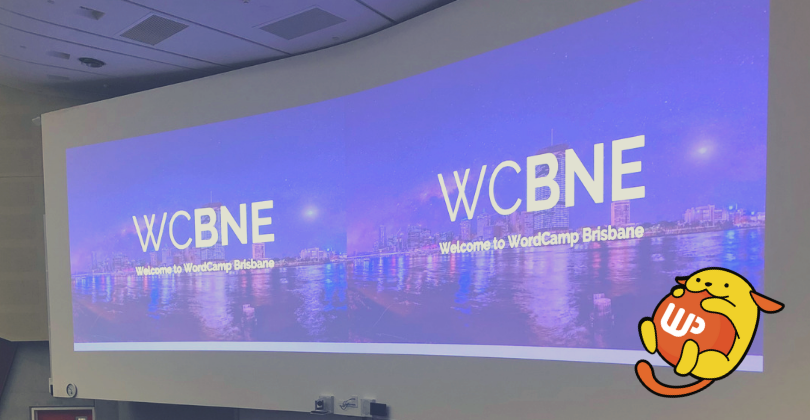From ‘fork’ to Gutenberg, WordPress has gone a long way.
WordPress is undoubtingly the most popular, customisable content management system (CMS), powering more than 30% of the web. From news portals, e-commerce, government and community-based sites, online magazines, company and corporate websites to personal blogs and celebrity fan pages – WordPress is the jack of all trades.
Even if you’re not geeky or has zero technical know-how, you can build your own WordPress website or blog – no coding required!
This coming 27 May 2018, WordPress will be celebrating its 15th anniversary. To mark this occasion, we’ll take a walk down memory lane and highlight WordPress’ turning points. Let’s see what’s in the drawing board of this elegant, well-architected platform.
Looking back
It was in May 2003 when WordPress was created by Matt Mullenweg and Mike Little, both web developers, as a fork of b2/cafelog. It’s written in PHP for MySQL and, in early 2004, new features were added, such as search engine-optimised permalinks, multiple categories, comment moderation and support for plugins, XFN and Atom.
In that same year, big brands started migrating to WordPress from Movable Type after the latter changed its licensing terms.
WordPress 2.0 (code: Duke) was released in December 2005 with a bundle of features. These include rich editing, upgraded admin and backend tools, faster image uploading and posting, and plugin development. There were minor releases after that.
The third version (code: Thelonious) was not completed until five years later. New theme APIs, ‘Twenty Ten’ default theme and the merging of WordPress and WordPress MU were the highlights of the new installation. In 2011, WordPress has become ‘friendlier’ to novice website owners and more compatible with mobile and portable computer devices (e.g. smartphones, tablets, iPads, etc.)
When PHP 5.5 and MySQL 5.6 were up and running in 2014, WordPress had to be reconfigured to work with both languages. Hence, WordPress 4.0 (code: Benny) was released.
At this time, WordPress is running its 4.9.6 version.
Milestone
As a free, open-source CMS, WordPress has already garnered several awards and accolades.
We wanted users to be able to do things easier. Not spend a ton of money on plugins and writing a bunch of custom code to accomplish their needs. – Mullenweg stated.
Below are some of the most notable honours that WordPress has received:
- 2004 – WordPress-Powered Sites in Bloggies
- 2008 – Winner of Infoworld’s “Best of open source software awards: Collaboration”
- 2009 – Winner of Open Source CMS Awards’ “Overall Best Open Source CMS”
- 2010 – Winner of digitalsynergy’s “Hall of Fame CMS category in the 2010 Open Source”
- 2011 – Winner of Infoworld’s “Bossie award for Best Open Source Software”
- 2015 – Winner of CMS Critic Award’s “Best CMS for Personal Websites”
As of April 2018, there are about 19,880,000 active sites using WordPress, including Facebook Newsroom, The White House, Katy Perry, The Official Star Wars Blog and other big name brands.
Its extensive customisation library houses about 45,000 plugins and extensions – not to mention over 5,400 website themes to choose (and tweak) from.
Since WordPress is an open source software, world’s best developers are exchanging knowledge and contributing their expertise, augmenting its functionality in order to adopt a plethora of usability as well as fix surfacing bugs and scripting issues.
WordCamps and sense of community
It’s always nice to meet, greet and rub elbows with people of similar interests and passions to yours.
WordPress users and developers have been doubled year after year, hence, WordCamps and WordPress Meetups are created. These locally-organised events aim to bring all WordPress enthusiasts, bloggers, web devs and designers together to share experiences, knowledge and productive insights.
WordCamps are global events and organised by Team Community with the help of volunteers, sponsors and guest speakers. It happens once a year in various countries and states. The WordCamp central website jots down the schedule of events and venues.
In case you missed the news, WordCamp Sydney is officially scheduled for 28-29 July 2018 at UTS Building, Ultimo, NSW.
We’re proud to announce that WP Hosting is sponsoring WordCamp Sydney 2018!
Meanwhile, WordPress Meetups are, usually, once-a-month gatherings and hosted by smaller WordPress communities. They get together with other CMS fans and discuss breakthroughs over a cup of coffee or dinner.
Check the calendar of WordPress events around Australia to see which ones are being planned near you.
What lies ahead
Project Gutenberg is WordPress’ greatest development and still a work-in-progress. This soon-to-be-released content editor is expected to revolutionise the publishing system, simplifying the customisation functions through the use of ‘blocks’ while getting rid of the codes (as much as possible).
Gutenberg is moving faster than anything within WordPress for the past five or even ten years. Direction changes are done quickly. – Mullenweg
There’s no need to be concerned about whether plugins will work with the new content editor because the migration guide is underway, crowdsourcing for contributors. You can review and add suggestions via the existing documentation on GitHub.
Gutenberg is released as a plugin for now so that users can test the app firsthand and provide feedback. There’s also Frontenberg, a frontend instance created by Tom J Nowell.
Wrapping up
The mission: WordPress is software designed for everyone, emphasizing accessibility, performance, security, and ease of use.
WordPress celebrating its 15th anniversary is a major milestone in the CMS industry. You may browse the official anniversary website to find which upcoming party/event is close to home – and JUMP IN!
With Gutenberg soon to be in full swing, this ultra-scalable CMS is seemingly on the right track. And we just can’t wait.
For the meantime, a toast to 15 prolific years of WordPress-ing!
P.S. Share to give WordPress a shoutout or leave a comment.




